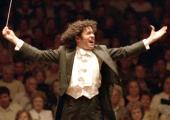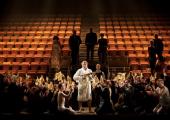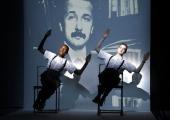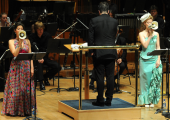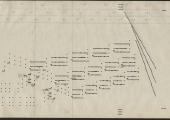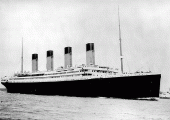BBC Proms: West-Eastern Divan Orchestra, Barenboim (Concert Four)/ Kronos Quartet
Proms hot up for Beethoven Seven but the late nighter proves a damp squib
Much has been written about how old-fashioned Daniel Barenboim's Beethoven cycle feels. Yet what can seem backward-looking is in fact a perfect reflection of Barenboim's personality. Each and every symphony appears with a swagger in its step and a cigar in its mouth. Last night's instalment - taking us to the Seventh and Eighth Symphonies - was no different.

